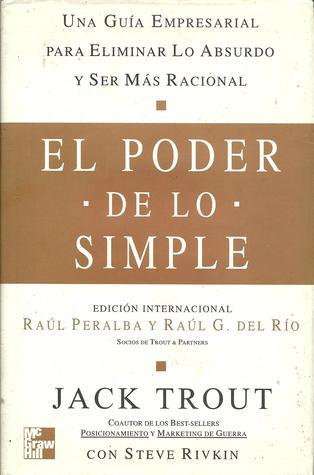What do you think?
Rate this book


- Luche contra la complejidad: la gente se resiste a lo simple porque le temeJack Trout, el conocido autor de cinco best-sellers, es uno de los estrategas mas importantes de nuestros dias; es el responsable de algunas de las ideas mas frescas que se han incorporado al marketing en la ultima decada. Es presidente de Trout & Partners, una red de boutiques de consultoria, con base en Connecticut, EE.UU. y asociados en Europa, Sudamerica y Asia.
- Abónese a lo simple: la teoría del caos es para los físicos.
- Respete a su gente.
202 pages, Paperback
First published January 1, 1998